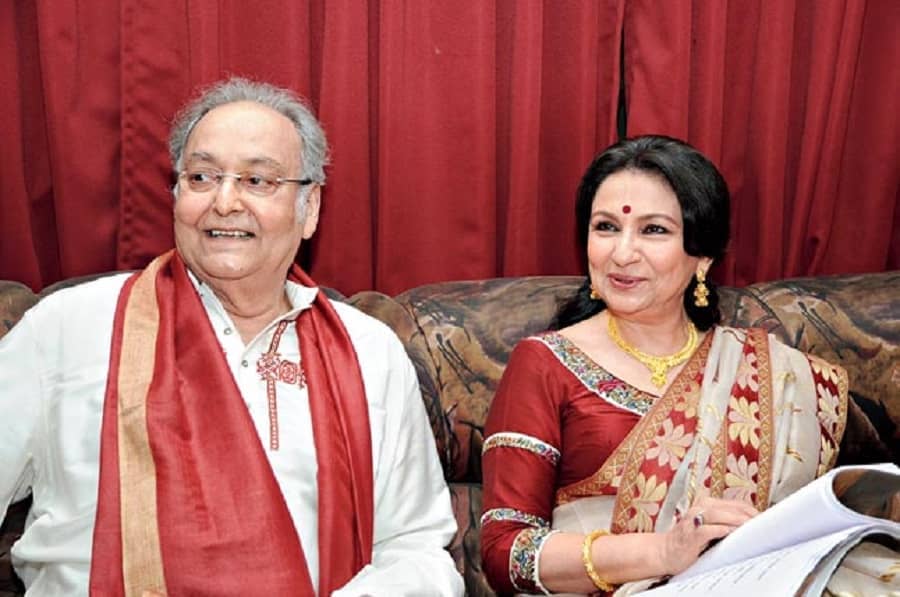Soumitra Chatterjee is a legend. Even after a year of his passing, there has been no let-up of the tributes that continue to pour in. Soumitra Chatterjee had captured the imagination of the people of Bengal and made a place in their hearts. His last journey was a testament to that. All of Kolkata was on the streets bidding him farewell with flowers, music and poetry.
Soumitra Chatterjee belonged to that rare breed of actors who could keep his audience spellbound over five decades. In a world where an actor past his prime often finds himself starved of good material,
Soumitra continued to get superlative roles. A young crop of film-makers like Suman Ghosh wrote scripts keeping Soumitra in mind. In his later years, he gave many notable performances. In Suman’s own Podokkhep, Peace Haven and Basu Poribar, in Shiboproshad Mukherjee and Nandita Roy’s Belaseshe and Atanu Ghosh’s Mayurakshi (both films Suman talks about in the book as being among Soumitra Chatterjee’s best), to name a few, he scintillates and sparkles.
Suman Ghosh’s memoir on his professional and personal relationship with Soumitra is a welcome addition to the existing literature on Indian cinema. His nuanced and subtle understanding of what makes an actor-director collaboration is very interesting.
It is fascinating to read about, for instance, a particularly difficult long scene in Dwando and the sheer ease and brilliance with which Soumitra executes it, physicalizing the director’s imagination. These are the hidden gems a viewer watching the film on screen can often miss. This book is replete with many anecdotes that make it extremely readable. The way Suman sifts through diverse aspects of Soumitra’s characters in the films they worked together provides a remarkable perspective on the craft of performative arts.
But Soumitra was more than just a film actor. He was a poet, painter, translator, writer — and in this book we get a close glimpse of these aspects of his life. Imagine translating portions of James Joyce’s novella or delving into Jibanananda Das for a film’s climax! Simply marvellous.
I have been fortunate enough to work with Soumitra Chatterjee in quite a few films, beginning with Apur Sansar — the film with which both of us began our journey in the world of cinema. It is particularly gratifying to see Suman Ghosh mention Barnali as amongst the finest of Soumitra’s oeuvre. I too have fond memories of us working together and it is also one of my favourite films. I am happy to see Suman quote Pauline Kael in the context of our work together.
I have had the privilege of observing Soumitra, up-close and personal, as an actor and as a human being. We have had many stimulating adda sessions. I can vouch for his remarkable range of interests which enlivened and enlightened these addas. I have always longed to do a recorded conversation with
Soumitra. I felt I could have got him to speak in a way that he had not done before — more personal and less academic — which would capture his vitality and genius. I regret that didn’t happen.
His was a very strong, clear and well-informed voice and we had much to learn from him. Now that he is no more, a significant portion of Bengal’s cinematic and performative history is lost to us forever. I am happy that Suman Ghosh has compiled his memories of working with Soumitra in this book and that it is being published for all of us to enjoy and cherish.
